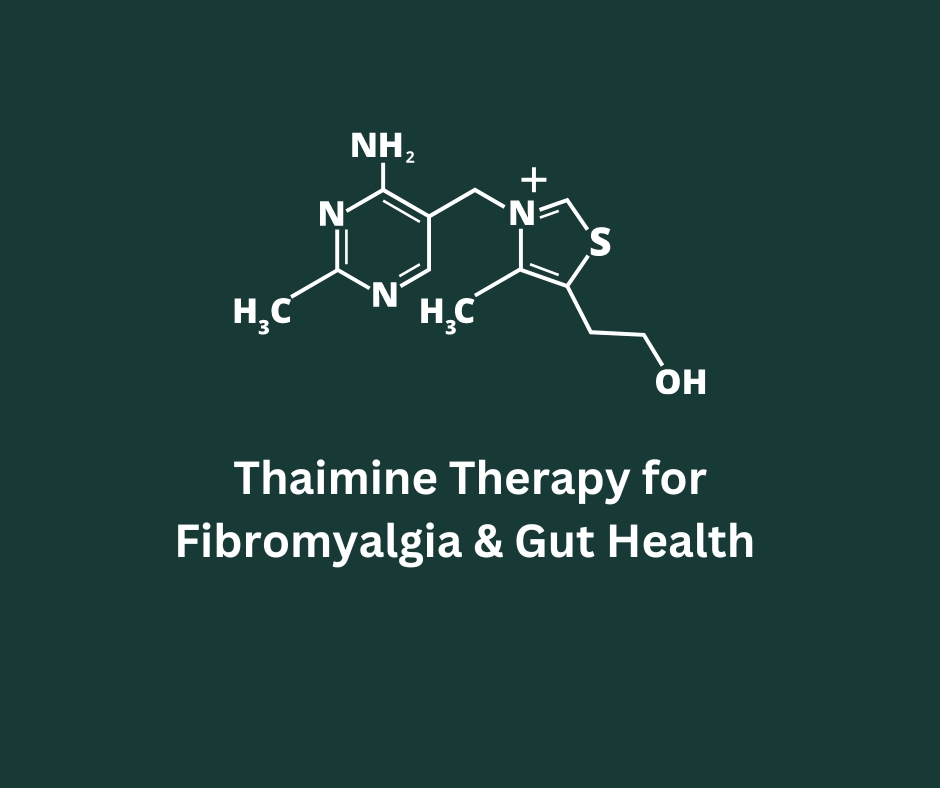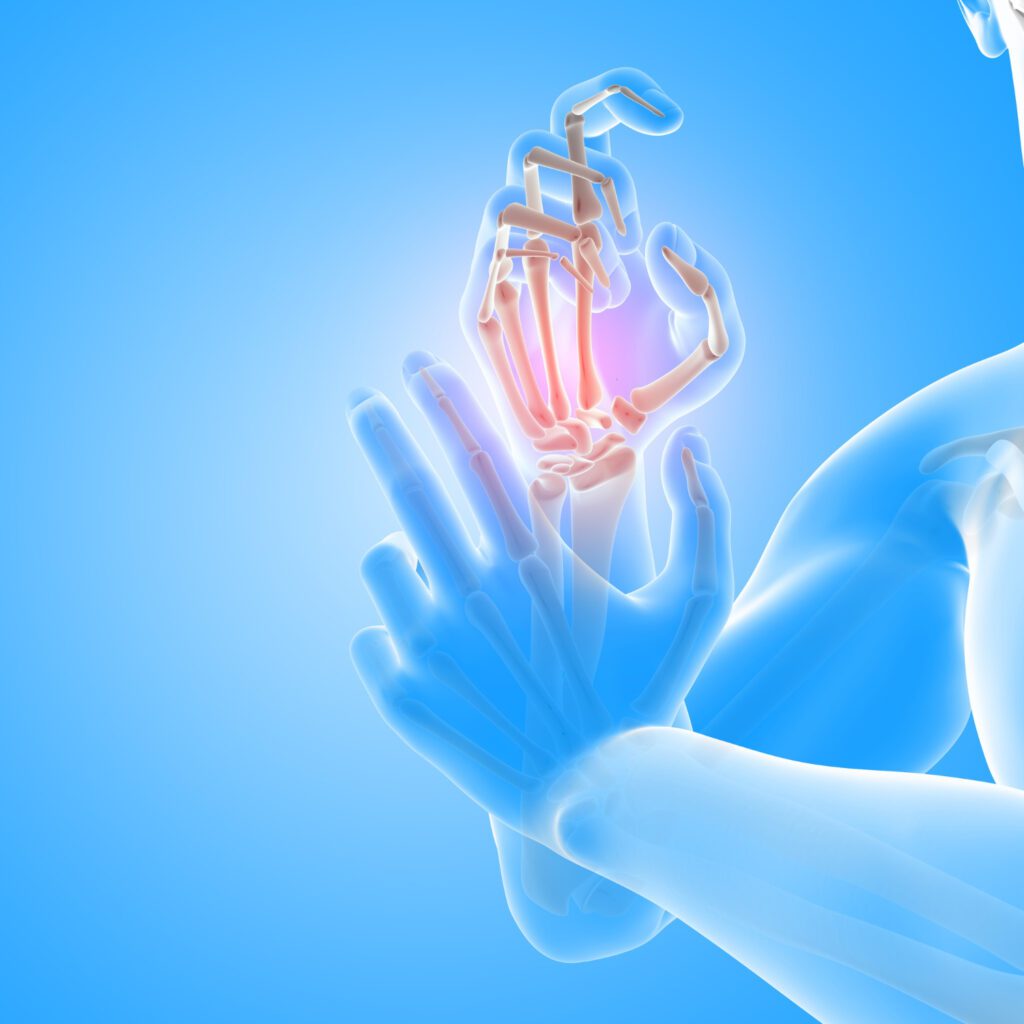Introduction
Autoimmune diseases are complex conditions where the body’s immune system mistakenly attacks its own tissues. Emerging research has highlighted the crucial role of gut health and the gut microbiota in regulating immune function and potentially influencing the development and progression of autoimmune diseases. Additionally, thiamine (Vitamin B1) has shown promise in modulating immune responses in conditions such as fibromyalgia and multiple sclerosis (MS). In this blog, experts from Cure4Pain Clinic India explore the connection between gut health and the immune system, the role of thiamine in autoimmune diseases, and suggest effective treatment strategies, dosages, and co-factors.
Gut Microbiota and the Immune System
The Gut-Immune Connection
The gut microbiota, a diverse community of microorganisms residing in the gastrointestinal tract, plays a pivotal role in maintaining immune homeostasis. This relationship between the gut and the immune system is known as the gut-immune axis. Key aspects of this connection include:
- Barrier Function: The gut lining serves as a physical barrier, preventing harmful pathogens from entering the bloodstream. A healthy gut microbiota supports the integrity of this barrier by promoting tight junction formation between epithelial cells.
- Immune Cell Modulation: The gut microbiota influences the differentiation and function of various immune cells, including regulatory T cells (Tregs), which help maintain immune tolerance and prevent autoimmune responses.
- Production of Short-Chain Fatty Acids (SCFAs): Gut bacteria ferment dietary fibers to produce SCFAs, such as butyrate, which have anti-inflammatory properties and help regulate the immune response.
- Microbial Metabolites: Metabolites produced by gut bacteria can influence systemic immune responses. For instance, tryptophan metabolites can modulate the activity of immune cells involved in autoimmunity.
Thiamine (Vitamin B1) and Immune Function
Thiamine, a water-soluble vitamin, is essential for energy metabolism and has been shown to influence immune function. Recent research has highlighted its potential role in modulating immune responses in autoimmune diseases.
Thiamine in Fibromyalgia
Fibromyalgia is a chronic condition characterized by widespread pain, fatigue, and cognitive disturbances. Thiamine deficiency has been observed in some fibromyalgia patients, and supplementation has shown promise in alleviating symptoms:
- Clinical Studies: A study published in Pain Medicine investigated the effects of high-dose thiamine supplementation in fibromyalgia patients. Participants received 600-1800 mg/day of thiamine for two weeks. The results showed significant improvements in pain, fatigue, and cognitive function, suggesting that thiamine may help modulate symptoms through its effects on the nervous system and energy metabolism.
Thiamine in Multiple Sclerosis (MS)
Multiple sclerosis is an autoimmune disease that affects the central nervous system, leading to demyelination and neurodegeneration. Thiamine’s role in MS has been explored in several studies:
- Metabolic Support: Thiamine is a cofactor for enzymes involved in glucose metabolism. In MS, mitochondrial dysfunction and impaired energy metabolism have been implicated. Thiamine supplementation may help support mitochondrial function and reduce neuroinflammation.
- Clinical Observations: Anecdotal reports and case studies have suggested that high-dose thiamine supplementation (300-1500 mg/day) may help improve symptoms such as fatigue, cognitive impairment, and motor dysfunction in MS patients.
Effective Treatment Strategies and Dosages
Thiamine Supplementation
For fibromyalgia and MS, high-dose thiamine supplementation is often recommended. Typical doses range from 300 to 1500 mg/day, depending on individual response and tolerance.
Form: Thiamine hydrochloride and thiamine mononitrate are commonly used forms. Benfotiamine, a fat-soluble derivative, may offer better absorption and efficacy in some cases.
Co-Factors and Synergistic Nutrients
- Magnesium: Magnesium is a cofactor for thiamine-dependent enzymes. Adequate magnesium levels are essential for thiamine metabolism and function. Supplementing with 200-400 mg/day of magnesium may enhance the effectiveness of thiamine.
- B-Complex Vitamins: B vitamins work synergistically, and a deficiency in one can affect the others. A B-complex supplement providing adequate levels of B2, B3, B6, and B12 can support overall energy metabolism and immune function.
- Dietary Considerations: Consuming a diet rich in whole grains, nuts, seeds, and legumes can help maintain adequate thiamine levels. Avoiding excessive alcohol consumption is also important, as alcohol can impair thiamine absorption.
Personalized Approaches to Autoimmune Disease Management
While thiamine and gut health are critical components in managing autoimmune diseases, it’s important to recognize that each patient’s experience with these conditions is unique. At Cure4Pain Clinic Mumbai, the approach to treatment is highly personalized, taking into account individual health profiles, specific symptoms, and co-existing conditions.
Comprehensive Diagnostic Assessments
The first step in managing autoimmune diseases effectively is a thorough diagnostic assessment. This includes detailed blood work to assess immune markers, nutritional deficiencies (including thiamine levels), and gut microbiota analysis. By understanding the specific imbalances in each patient’s body, a more targeted treatment plan can be developed.
Holistic Treatment Plans
Cure4Pain Clinic emphasizes a holistic approach that goes beyond conventional medication. Treatment plans often combine:
- Nutrition Therapy: Customized dietary plans that focus on reducing inflammation, supporting gut health, and ensuring adequate intake of essential vitamins and minerals, including thiamine.
- Supplementation: High-dose thiamine, along with other necessary vitamins and minerals like magnesium and Vitamin D, tailored to the patient’s needs.
- Physical Therapy and Exercise: Exercise routines designed to enhance mobility, reduce pain, and improve overall physical function, crucial for conditions like fibromyalgia and multiple sclerosis.
- Mind-Body Techniques: Stress management techniques such as meditation, yoga, and breathing exercises that help manage the psychological impact of chronic illness.
- Medication: When necessary, the clinic may recommend specific medications to manage symptoms and prevent disease progression, always in conjunction with natural therapies to minimize side effects.
Patient Education and Support
An integral part of treatment at Cure4Pain Clinic is educating patients about their condition and the role of diet, lifestyle, and supplements in their management plan. Patients are encouraged to take an active role in their treatment, making informed decisions that support long-term health and wellness.
The clinic also provides ongoing support through follow-up consultations, adjusting treatment plans as needed based on patient progress and new research developments. This dynamic approach ensures that each patient receives the most effective care possible.
Contact Cure4Pain Clinic Mumbai
If you or a loved one is struggling with an autoimmune disease, reach out to Cure4Pain Clinic Mumbai for a personalized consultation. Our team of experts is dedicated to helping you achieve a better quality of life through innovative and integrative treatment strategies.
For more information or to schedule an appointment, visit our website or contact us directly at [Clinic Phone Number] or [Clinic Email Address]. Empower yourself with knowledge and take the first step towards better health today.
Watch our informative video on Thiamine & Vitamin D Therapy
References
For those interested in delving deeper into the science behind these approaches, here are some of the key studies and articles referenced in this blog:
- El Aidy, S., et al. (2012). The microbiota and regulation of mucosal immunity. Frontiers in Immunology, 3, 424.
- Arpaia, N., et al. (2013). Metabolites produced by commensal bacteria promote peripheral regulatory T-cell generation. Nature, 504(7480), 451-455.
- Costantini, A., et al. (2013). High-dose thiamine improves the symptoms of fibromyalgia. Pain Medicine, 14(11), 1812-1820.
- Costantini, A., et al. (2016). High-dose thiamine as initial treatment for fibromyalgia: A novel approach. BMJ Case Reports,


